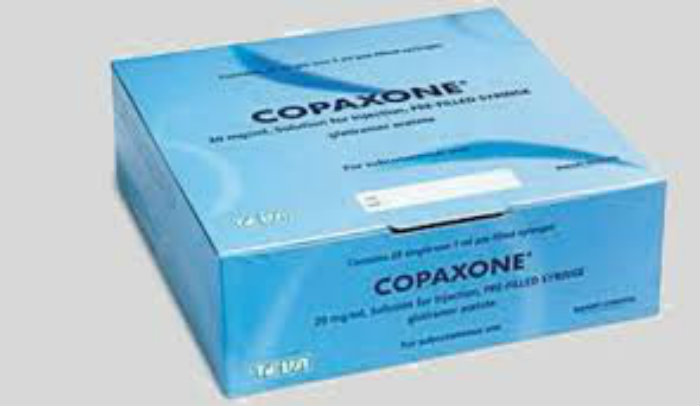I see a lot of reasons why people stop, or refuse to start, an MS medication.
“Thinking of stopping the…meds. Sick of the shots and how they hurt to take them”
“I stopped all of them….all multiple times. It takes too long for an appointment and I tapered off “
“Half the s**t will kill you”
“My body and my choice”
“The side effects are worse than the disease”
Forty percent of people being treated for MS stop using their disease-modifying therapies (DMTs) less than three years after they start them, according to a study published in the American Journal of Managed Care. I’ve been using a DMT since Avonex first became available in 1996. (I moved from Avonex to Tysabri, Aubagio, and finally, Lemtrada). So, I find it hard to understand why someone wouldn’t want to try using a DMT that might stand a good chance of slowing, or even halting, the progression of their disease.
Why do people reject using an MS medication?
The most common reasons, according to the AJMC report, is that people think a DMT isn’t helping, or won’t help, them. Or, they’re worried about possible side effects. However, with 15 approved medications in the U.S. (the number may be different in other countries), it seems unlikely that a medication fit couldn’t be found. (I have heard a few people say that nothing has worked for them.)
So, what’s the hang-up?
One of the hang-ups is money. The report says that 14 percent of the people who reject DMTs do so because they can’t afford them. But for a much larger group, the hang-up wasn’t considered to be rational. Over 42 percent of the 78 people included in the study declined a DMT because they couldn’t admit to themselves they have a serious disease. They “cite irrational reasons for avoiding DMTs as an avoidance coping strategy to downplay perceived disease severity and/or avoid being constantly reminded of their disease,” the study said. A very small number, about 6 percent, thought they didn’t need the medication because they considered the course of their MS to be “mild.” To me, that’s similar to avoidance coping.
Is this another example of the ‘gambler’s dilemma?’
This mindset seems to be similar to the “gambler’s dilemma” that I wrote about a few weeks ago on the MS News Today website. It’s a term used by Prof. Gavin Giovannoni, who writes for the Barts MS Blog.
An MS patient may think they “will be the lucky one that will win,” Giovannoni writes. “Someone with MS is never going to have bad MS, they are always going to be the one that ends up with no problems in the future, therefore, they don’t need more effective treatments.”
Are they right to reject treatments?
I don’t think they are. I suspect that most medical professionals wouldn’t, either. So, if a patient is in denial about MS — is “gambling” that it won’t worsen — should a DMT be pushed?
The study reported in AJMC concludes: “Further research is needed to develop means of identifying patients who are not taking DMTs for avoidance coping reasons as well as strategies to promote initiation or re-initiation of DMTs in this patient population.”
Should “strategies” be used to push a medication to a patient who a doctor feels is avoiding coping with MS? What do you think?
(This post first appeared as my column on the Multiple Sclerosis News Today website).




I was a pescatarian for 20 years and did not eat gluten for 17 years. I was diagnosed with RRMS despite my “healthy” diet. I now eat whatever I feel like eating and have been taking DMTs since I was diagnosed in 2010. I did have a hiatus from the drugs when pregnant and nursing. Really, pharma and researchers should look more closely at the female body during pregnancy since I did not feel one symptom during that time.
It’s because of the normal part of pregnancy and the mother’s immune system adjusting to allow for the development of a fetus, instead of attacking it like a foreign pathogen/invader. It’s suppressed, in certain ways. Most women with MS feel fantastic while pregnant (at least not the normal MS awfulness), but there is a high chance of a relapse a few months after giving birth, when hormone levels go back to pre-pregnancy levels.
Good info, Katey. What you described happened, many years ago, to a colleague of mine.
Ed
Maybe they should put more $$$ into finding a cure instead of finding new meds that cost too much….
I was treated with Tysabri for two years but when I changed my diet to an AIP autoimmune protocol I knew food was causing most of my symptoms. Through research I learned about the immune system and how autoimmune starts through the gut. It took a lot of ‘guts’ to say I can treat auto immune through food. I have been drug free for 3 years. Over that time I have tailored my diet even more than AIP. I’ve never felt better! I encourage people to tailor their diet and food journal (which is what my book is about) I agree that you should not just quit or change your immunosuppressant without a good fall back. And trusting your diet is about trusting your body. If you don’t have that, then don’t stop those drugs! Good post, thanks!